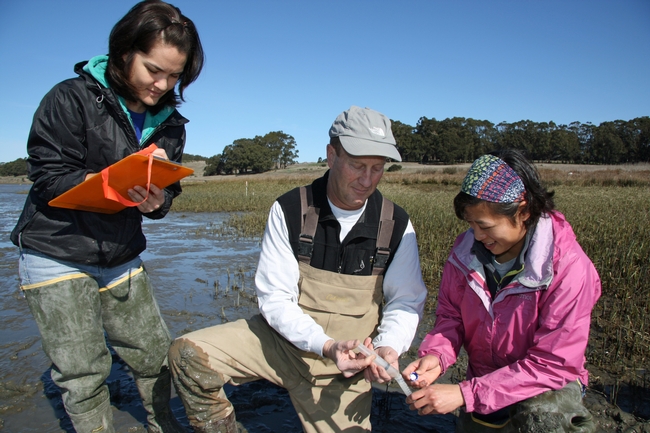Posts Tagged: Thompson
Online ordering for fast food inconsistent with healthy beverage law, study finds
Lack of specific language for online context makes assessing compliance difficult
Beverages offered on fast-food restaurant websites and platforms such as DoorDash, GrubHub and UberEats often do not adhere to the spirit of California's healthy beverage law for children's meals, according to a new study from University of California researchers.
California's healthy-by-default beverage law (SB1192), which went into effect at the beginning of 2019, requires restaurants to offer only plain or sparkling water with no added sweeteners, unflavored milk, or unflavored non-dairy milk as the default beverage in “kids meals.” The law also requires that menus, menu boards and advertisements for those meals include only approved default options.
The law was passed to address increasing rates of childhood obesity and related chronic diseases, with sugary beverages factoring as a significant contributor to those poor health outcomes.
“Healthy-by-default beverage laws work by making the healthiest choice, the easiest choice for families,” said the study's lead author, Hannah Thompson, senior epidemiologist for the UC Nutrition Policy Institute and assistant adjunct professor at the UC Berkeley School of Public Health. “Drinking sugar-sweetened beverages like sodas has been directly linked to health problems such as Type II diabetes, heart disease and cavities.”
Researchers at the NPI – a program of UC Agriculture and Natural Resources – found that most fast-food restaurants serving low-income census tracts did not offer beverages online in a way that is consistent with SB1192. The study focused on those neighborhoods because children from low-income families consume sugar-sweetened beverages in greater quantities, likely exacerbating health disparities.
Published online in the journal Public Health Nutrition, the study looked at a random sample of 254 “quick service restaurant” sites and collected observations from their restaurant-specific websites and three of the most popular online platforms that deliver their menu items – DoorDash, GrubHub and UberEats.
Researchers developed four increasingly restrictive criteria – incorporating beverage availability, upcharges and presentation of beverage options – to assess the implementation of SB1192 in these online ordering contexts. Half of their observations met their most lenient criteria, while less than 6% were consistent with their most restrictive – findings that Thompson called “discouraging.”
“It means families have to work harder to make the healthiest drink choices for their children,” she said. “This also means the law is likely not nearly as successful as it could be in its intent to help reduce sugary drink consumption by kids.”
The researchers had to create their own criteria for “compliance” with the law because, as written, SB1192 does not specifically mention online ordering, which has become increasingly popular due to the COVID-19 pandemic.
“Part of what makes it hard in the online context is that the law was written using language very specific to the in-restaurant physical space, making interpretation of compliance with the law for meals sold online challenging,” Thompson explained. “I'd love to see amended language in the law specific to meals sold online.”
Thompson also said she would like to see “clear and effective” communication with fast food restaurants and online delivery platforms so that they fully understand the healthy beverage law – as well as the use of a monitoring system that could help ensure compliance.
“Laws, which target system-level changes, are one of the most important public health tools we have to reduce sugary drink consumption and improve health for youth of all backgrounds,” she said. “But laws are only as strong as the structures in place to ensure their successful implementation.”
The other NPI-affiliated authors of the study are Senior Evaluators Anna Martin and Ron Strochlic, Evaluation Associate Sonali Singh, and Associate Director of Research Gail Woodward-Lopez, the principal investigator.
Postharvest technology is something of a mystery
Postharvest technology. Hmmm. What does that even mean to you? Like most people, you’ve probably never thought about it, but it actually affects you every day. At least whenever you eat fruits and vegetables, and let’s face it, we all need to be eating more fruits and vegetables.
Working at the Postharvest Technology Center, I often think about how to spread our mission of how to reduce postharvest losses and improve the quality, safety and marketability of fresh horticultural products. Part of doing this is educating consumers about making good choices so they have a better experience eating fruits and vegetables. And, if consumers have a better experience with fruits and vegetables, we eat more of them. If we can create demand at the consumer end, it will trickle through to the people that handle your produce: processors, retailers, distributors, carriers, marketers, shippers and finally growers.
I spoke with Jim Thompson, who wrote “From the Farm to Your Table: A Consumer’s Guide to Fresh Fruits and Vegetables” along with Adel Kader, two distinguished experts in the field of postharvest technology. Thompson said they wrote the publication knowing that, “For most consumers, it’s kind of a mystery what influences the quality of their produce. This publication answers some of the questions of how to make good choices at the market and at home.”
Thompson adds, “There are many things that can steal quality from produce. And it starts at the farm.”
The type of cultivar the farmer chooses to plant and what kind of soil, temperature and light conditions, irrigation and fertilization practices at the farm affect flavor and nutritional quality. When the product was harvested, how it was handled prior to arrival at your market, and how your market stores the product all influence the quality of your produce.
You certainly know which market in town has the best produce section, and it’s important to you. In fact, according to the 2011 National Grocers Association Consumer Survey Report, “Consumers say they are keeping health a priority—and 91 percent regard a stellar produce department as a ‘very important’ factor in where they buy groceries. This is precisely the same percentage as a year ago, which represented a dramatic five-point jump from the 86% level of two years ago. While the recession may have withered wallets, it hasn’t hurt consumers’ resolve on this measure.”
If you’d like to learn more about how you can make the most of your fresh fruit and vegetable experiences, the Postharvest Technology Center is offering a 40 percent discount (making it only $4.20!) on “From the Farm to Your Table” through the end of September 2012. And as long as you’re there, our other consumer publication, the poster “Storing Fresh Fruits and Vegetables for Better Taste” (just $1) would be a lovely addition to your refrigerator!
Please contact us at (530) 754-4326 or postharvest2@plantsciences.ucdavis.edu if you’re interested in ordering multiple copies for a nutrition, health or cooking class or you can purchase them through our online bookstore.
UC Davis scientists to discuss aquatic invasive species and research on endangered fish
A pair of leading UC Davis experts will provide a rare glimpse into efforts to protect California biodiversity at a public lecture May 10, 4–6 p.m., in the UC Davis Conference Center.
Their work is featured in the current issue of “CA&ES Outlook,” the magazine of the UC Davis College of Agricultural and Environmental Sciences. The magazine also examines the work of other UC Davis scientists and students working to conserve biodiversity in California.
The event concludes with a reception and an opportunity to visit with Thompson, Grosholz, CA&ES dean Neal Van Alfen, and other participants. The cost is $15 per person. To register, go to https://registration.ucdavis.edu.
For additional information about this event, please contact Carrie Cloud at (530) 204-7500 or crcloud@ucdavis.edu.






